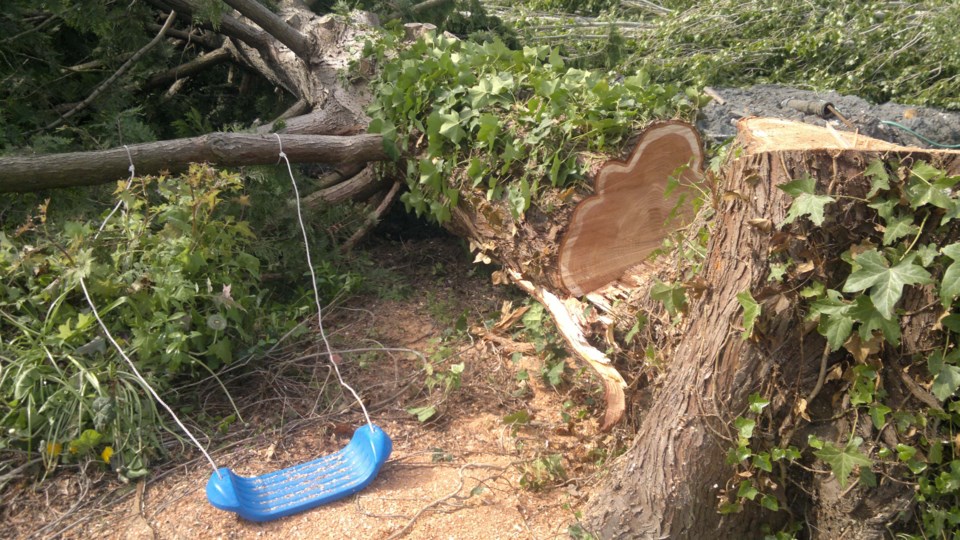Dear Editor,
As one can note based on the letters to the editor, the trees-on-private-property issue in Richmond remains a hot topic and doesn’t seem to want to go away — and for good reason.
The trees that are on private property are there at the pleasure of the owner, not the public. I’m in favour of letting the private property owner dictate what happens to their trees on their property.
As an owner of private property, I have several (four) large ornamental trees as well as numerous (six) fruit trees on my 10,000 (60’ x160’) square foot lot. These take up a lot of space, require water, fertilizer, pest control, and constant pruning and maintenance to ensure their health, good looks and oxygen-producing capabilities. So, when those nosy neighbours start complaining when a tree comes down at my pleasure, let them put their money were their mouth is.
I propose that private property owners receive a property tax credit for each tree they have on their property, let`s say, $50/tree/year. The tax-incentive should apply to trees of the same or similar specifications as per the existing tree bylaw.
“The City’s Tree Protection Bylaw No. 8057 generally prohibits the cutting or removal of any tree larger than 20 cm (7-7/8 inches) in diameter at breast height (dbh - measured at 1.4m or 4’7” above the ground) without a permit.”
In my case, I would be eligible for a $500 tax reduction each year (10x$50). But, the outcry…”How is the money lost by the tax incentive going to be replenished?”. Simple…by taxes. Each renter and land owner (and most of all those nosy neighbours) will be taxed a portion of the total lost by incentives, including myself, so that there is no net increase in taxes payable to the city. Those with more trees than the city average will be compensated for their trees and pay less taxes, while those without trees on their private property will end up paying more taxes. Many private landowners will probably have an average number of trees on their lot and their taxes will not change.
And we get some more employment opportunities for the city or a private contractor to count, verify, and manage the tree numbers on private property. Add the salary and benefits of those employees to the tree tax formula.
I expect that as time goes on, more trees will end up being “saved” as money has a way of doing that. The nosy neighbours should be happy that more trees are being saved (but not too happy about paying for it?) and the tree owners will see their efforts being rewarded.
Vic Friesen
Richmond



